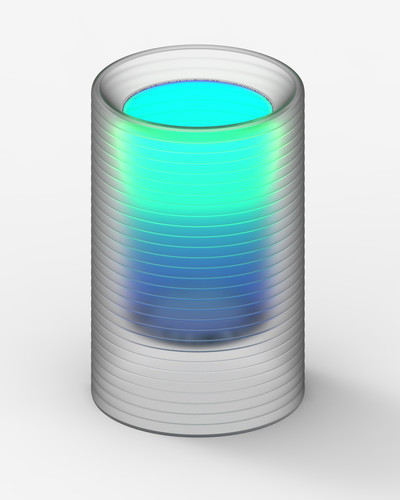Sara de Campos
the 28 June 2019
The initial striking thing about the designer Sara de Campos is the quality of her perspective, placed upon the things which surround her and the accuracy of her appreciation of the perceptible. No concession is made to the consumerist logic of objects, her process is more that of someone who scrutinises and who is looking to return to what is essential in a function. When Sara de Campos designs a form, she is interested above all in its origins in order to question an object’s intelligence. Why was it originally created. With what gestures, what tools, and for what purpose? It is this return to basics which allows her to avoid overproducing, and permits her to partake within a history of gestures and uses, providing modernity to the archaic.
For her vase project at Cirva, she decided to return to a “prototype” form, which she considers to be a cylinder: the most radical form consistent with its function. She places an accent upon the intrinsic qualities of glass and its reactions to light. By very subtly working the edges, the angles, and the exterior texture of vases, she has invented a Mediterranean landscape. The colours she has chosen are, on the one hand, those of the sparkling of the sea and the effect of ripples on the water, and on the other hand, those of sunsets on the sea horizon, in all of the nuances of their colour gradients. The edges of the blown glass, carefully polished with a gentle angle, as well as the incisions engraved in the thick sides, evoke the mineral geography of the Calanques. For the glass feet, the landscape moves inland by drawing the valley between two rocky mountains. These are heavy and powerful containers, made to receive flowers from the Mediterranean region, flowers that can resist the droughts and the wind.
Sara de Campos’s experience with glass also belongs to a register of the essential. She considers it to be a generic material, indispensable in a contemporary designer’s creative palette. But, how can one approach it without any technical knowledge? Her project, developed in parallel with Sèvres – Cité de la céramique, calls upon the same work philosophy, an attitude based on listening and observing another person’s knowledge in order to develop with the greatest of accuracy. Hence, it is with simplicity that Sara de Campos has imagined for Sèvres — this historic factory responsible for some of the most important table services for royal courts and influential families in Europe — an everyday service which combines the beauty of the material with the minimalism of its form and decoration. The Mediterranean diet consists of some of the simplest and most natural ingredients — olives, bread, fruits, and wine — and this inspired her in the designing of setting where all, family and friends, can come together without pretension or decorum, but in the conviviality of the moment. This moment when the meal spontaneously becomes a vehicle for genuine and profound discussions, for good and bad news, for the decisions which punctuate our lives… In combination with these somewhat sociological considerations, there is also the desire to be mindful of a controlled and modest cost, adapted for the everyday use of a table service. Whilst maintaining an attention to detail and a contemporary spirit, it was also a matter of designing pieces with Sevres that are accessible, functional, and beautiful. Thus, some of the elements can be stacked in order to maximise space and facilitate manipulation, others — such as the fruit bowl — are concerned with preservation by anticipating the need for air to pass freely between the foods. Specific attention has also been paid to the rims of the jugs and glasses in order to insure that no oil or wine is unnecessarily wasted, thus improving their ease of use and savouring the pleasure.
If one wanted to resume in only a few words the substance of Sara de Campos’s work, then one might suggest the following: trusting in the gestures of an artisan grant her a tranquillity and a confidence to explore the paths of innovation, risking failure, and renewing techniques through dialogue and exchange. This humble and generous attitude can be understood as being in coherence with her Portuguese origins, where she was born into family of winegrowers. The relationship with the earth, the landscape, savoir-faire, and epicureanism are an integral part of her history and her path. She studied at ECAL in Switzerland, where she developed a demanding nature which allows her to frame her projects according to the demands of industry and manufacturing. Today, she has collaborated with Cirva and Sèvres – Cité de la céramique thanks to the villa Noailles and the Grand Prix Design Parade which she won in 2018. So many different techniques and materials which evoke the many rich experiences, collaborations and explorations that are yet to come.
Isabelle Reiher
Director, Cirva Marseilles
